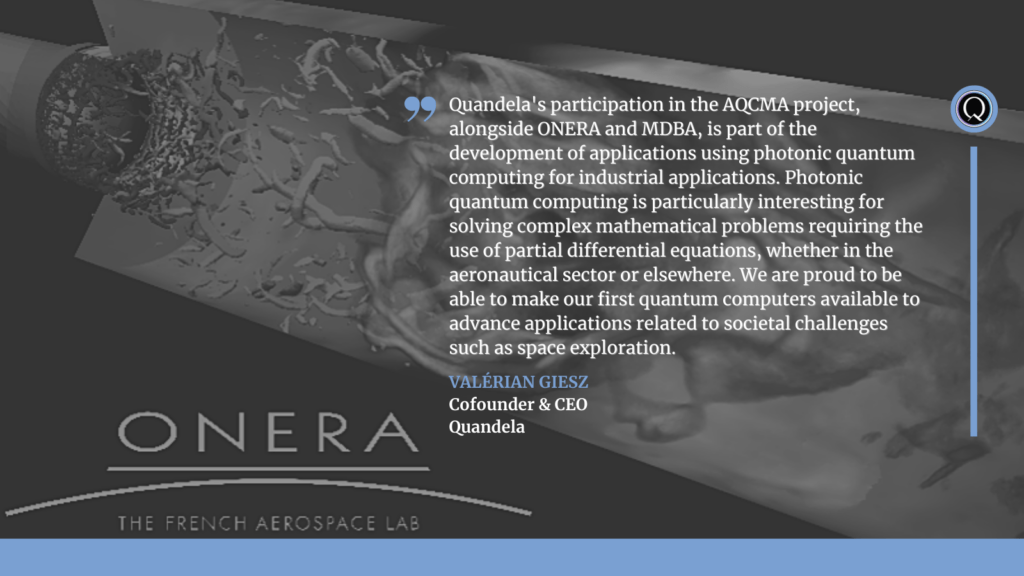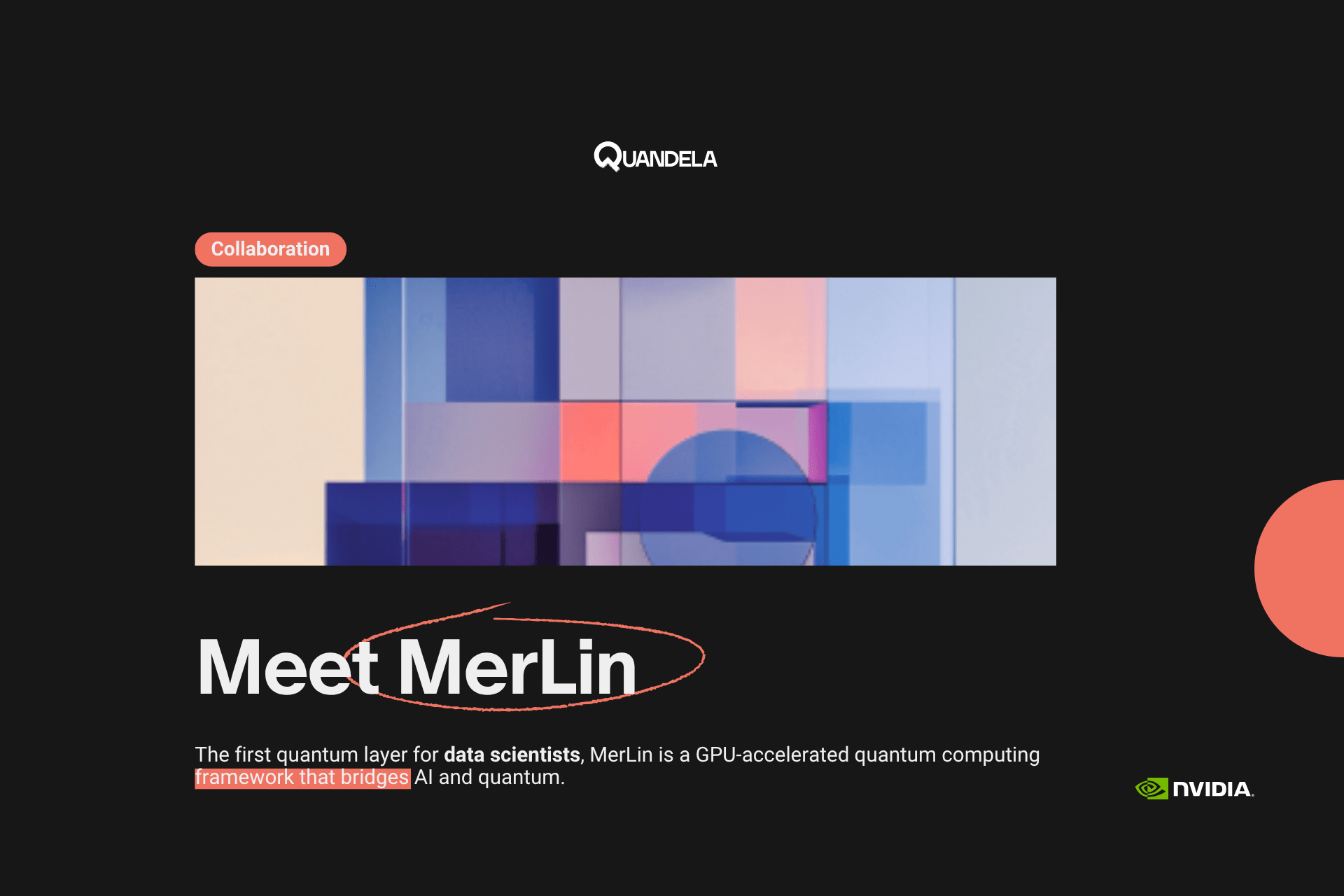The French start-up Quandela, which specializes in photonic quantum computing, has joined forces with ONERA and MBDA as part of the Ile-de-France Region project: Quantum Advantage for Aircraft Engine Design (AQCMA). AQCMA will last 18 months, aiming to reduce simulation time of aircraft combustion chambers by exploiting quantum machine learning. This is a new opportunity for Quandela to use its technology for concrete industrial applications.
In order to improve the performance, safety and environmental impact of aircraft engines, ONERA uses digital simulations to study complex phenomena such as combustion, with all of these combined simulations consuming 95% of ONERA’s computing time. The prospects of quantum computing could, however, offer a significant time saving, which would allow a better understanding of the physio-chemical phenomena linked to combustion.
Quandela will initially study laminar plane flames with basic kinetics, using their photonic quantum computing platform Perceval. This work will be then built upon to develop more complex scenarios. The first results are expected by the end of 2023.
ONERA is committed to the development of quantum technologies for aeronautics, space and defense applications within its QTech laboratory, inaugurated in February 2022, around four main axes: quantum computing, quantum communications, quantum optronics and cold-atom sensors.
“Quandela’s participation in the AQCMA project, alongside ONERA and MDBA, is part of the development of applications using photonic quantum computing for industrial applications. Photonic quantum computing is particularly interesting for solving complex mathematical problems requiring the use of partial differential equations, whether in the aeronautical sector or elsewhere. We are proud to be able to make our first quantum computers available to advance applications related to societal challenges such as space exploration,” says Valérian Giesz, co-founder and CEO of Quandela.
“ONERA benefits from a recognized scientific expertise in quantum computing for the benefit of the aeronautics, defense and space sectors. The joint research efforts with Quandela will allow us to accelerate our knowledge and work in quantum computing thanks to a complementary and solid expertise. Quandela benefits from expertise in quantum photonics from the CNRS combined with algorithmic know-how within an integrated team of theorists and programmers in the MosaiQ hardware and Perceval software environments,” says Alain Refloch, of ONERA’s QTech laboratory.
About Quandela
Quandela, entreprise leader dans le domaine du calcul quantique, propose des solutions de niveau industriel. Quandela conçoit, construit et fournit des systèmes quantiques prêts à l’emploi pour les datacenters, des processeurs quantiques accessibles via le cloud, et des services d’accès aux algorithmes.
Fondée en 2017 par la professeure Pascale Senellart, directrice de recherche au Centre de nanosciences et nanotechnologies (C2N) du CNRS, Niccolo Somaschi et Valérian Giesz, experts de renommée internationale en physique quantique, Quandela emploie plus de 100 collaborateurs de 20 nationalités différentes, en majorité des chercheurs et des ingénieurs en optique, algorithmes et sciences de l’information.
Quandela s’engage à rendre l’informatique quantique accessible à tous pour relever les défis industriels et sociétaux les plus complexes.
Pour en savoir plus : www.quandela.com
GB
Quandela, a leader in quantum computing, specializes in industry-grade quantum computing solutions. Quandela designs, builds, and supplies datacenter-ready quantum computing systems, cloud-accessible quantum processors, and algorithm with industrial value.
Founded in 2017 by Professor Pascale Senellart, Research Director at the Centre for Nanosciences and Nanotechnologies (C2N) at CNRS, Niccolo Somaschi and Valerian Giesz, internationally renowned experts in quantum physics, Quandela currently has over 100 employees from 20 different nationalities, mostly researchers and engineers in optical, algorithm and data science.
Quandela is committed to making advanced quantum computing accessible and beneficial for all, empowering innovators to solve the most complex industrial and societal challenges.
About ONERA, the French Aerospace Research Centre
ONERA, a key player in aeronautics and space research, employs over 2,000 people. Under the supervision of the Ministry of the Armed Forces, it has a budget of 266 million euros (2022), more than half of which comes from study, research and test contracts. As a state expert, ONERA prepares tomorrow’s defence, meets the aeronautical and space challenges of the future, and contributes to the competitiveness of the aerospace industry. It masters all the disciplines and technologies in the field. All the major civil and military aerospace programmes in France and Europe carry part of ONERA’s DNA: Ariane, Airbus, Falcon, Rafale, missiles, helicopters, engines, radars, etc. Recognised internationally and often awarded prizes, its researchers train many doctoral students.
http://www.onera.fr






